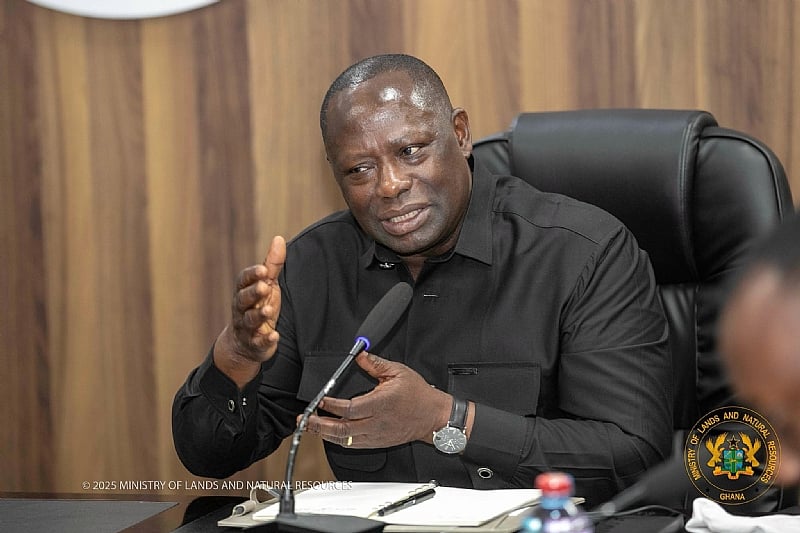The Ghanaian government, through the Ministry of Lands and Natural Resources, has unveiled a comprehensive initiative, the Responsible Cooperative Mining and Skills Development Programme (rCOMSDEP), designed to revolutionize the artisanal and small-scale mining (ASM) sector. This program, approved by the Cabinet, represents a significant shift in policy, replacing the existing Community Mining Scheme (CMS) and the National Alternative Employment and Livelihood Programme (NAELP). rCOMSDEP aims to address the multifaceted challenges facing the ASM sector, from environmental degradation and the use of hazardous substances like mercury to the socio-economic marginalization of mining communities. The core principle of rCOMSDEP revolves around the establishment of locally owned and operated mining cooperatives, providing a structured and sustainable framework for ASM activities.
The crux of the rCOMSDEP program lies in its focus on empowering local communities through the formation of mining cooperatives. These cooperatives will be equipped with the necessary tools and resources to operate responsibly and profitably. This includes access to legally recognized mining concessions, ensuring that their operations are legitimate and within the bounds of the law. Furthermore, they will receive comprehensive training in modern, environmentally sound mining practices, promoting sustainable operations and reducing the negative impacts on the environment. Crucially, the program will provide access to shared processing facilities equipped with mercury-free technology. This is a significant step towards eliminating the use of mercury in gold processing, a practice that has severe health and environmental consequences. By facilitating access to advanced technology, rCOMSDEP aims to improve gold recovery rates, enhancing the economic viability of the cooperatives while simultaneously safeguarding the environment.
rCOMSDEP’s multifaceted approach is reflected in its three primary objectives: promoting environmentally responsible mining practices, rehabilitating lands degraded by illegal mining activities, and providing vocational and entrepreneurial training, particularly for youth and women. The emphasis on environmental responsibility seeks to mitigate the ecological damage caused by unsustainable mining practices. By training miners in sustainable techniques and providing access to appropriate technology, rCOMSDEP aims to minimize the environmental footprint of ASM operations. The program’s commitment to land rehabilitation addresses the legacy of environmental degradation left by illegal mining, aiming to restore damaged ecosystems and improve the overall health of mining communities. The focus on skills development aims to empower individuals within these communities, providing them with the necessary skills to participate meaningfully in the formal economy and create sustainable livelihoods.
The six pillars of rCOMSDEP provide a structured framework for achieving these objectives. Cooperative mining with centralized processing forms the cornerstone of the program, establishing a system that promotes collaboration, efficiency, and responsible resource management. Technical support services will provide ongoing assistance to the cooperatives, ensuring they can effectively implement best practices. Vocational training will equip community members with marketable skills, fostering economic diversification and reducing reliance on unsustainable mining practices. Environmental rehabilitation initiatives will address the ecological damage caused by illegal mining, restoring degraded lands and promoting sustainable land management. Agricultural value chain development will create alternative income streams for mining communities, reducing their dependence on mining and promoting economic resilience. Finally, community infrastructure projects will improve the overall living conditions in mining communities, contributing to their sustainable development.
The successful implementation of rCOMSDEP requires the collaborative efforts of various stakeholders. The Ministry of Lands and Natural Resources has called upon traditional authorities, recognizing their significant influence and role in local governance. Their endorsement and active participation are crucial for gaining community acceptance and ensuring the program’s cultural sensitivity. Youth groups, representing the future of these communities, are vital for the long-term sustainability of the program. Their involvement ensures that the skills and knowledge acquired through rCOMSDEP are passed on to future generations. Civil society organizations, with their expertise in community development and advocacy, play a crucial role in monitoring the program’s implementation and ensuring its responsiveness to the needs of the communities. Finally, the engagement of private sector actors is essential for providing investment, technology, and market access, creating a more robust and sustainable ASM sector.
The rCOMSDEP program represents a significant step towards formalizing and regulating the ASM sector in Ghana. It seeks to transform mining communities by fostering sustainable practices, restoring damaged ecosystems, and creating inclusive economic opportunities. By empowering local communities through the establishment of cooperatives, providing access to training and technology, and focusing on environmental rehabilitation, rCOMSDEP aims to create a more responsible and sustainable ASM sector that benefits both the environment and the people who depend on it. The collaborative approach, involving various stakeholders, is crucial for the program’s success and long-term impact. It acknowledges the complexity of the ASM sector and the need for collective action to address its challenges effectively. The success of rCOMSDEP will not only contribute to the economic development of mining communities but will also serve as a model for other countries grappling with the challenges of the ASM sector.


